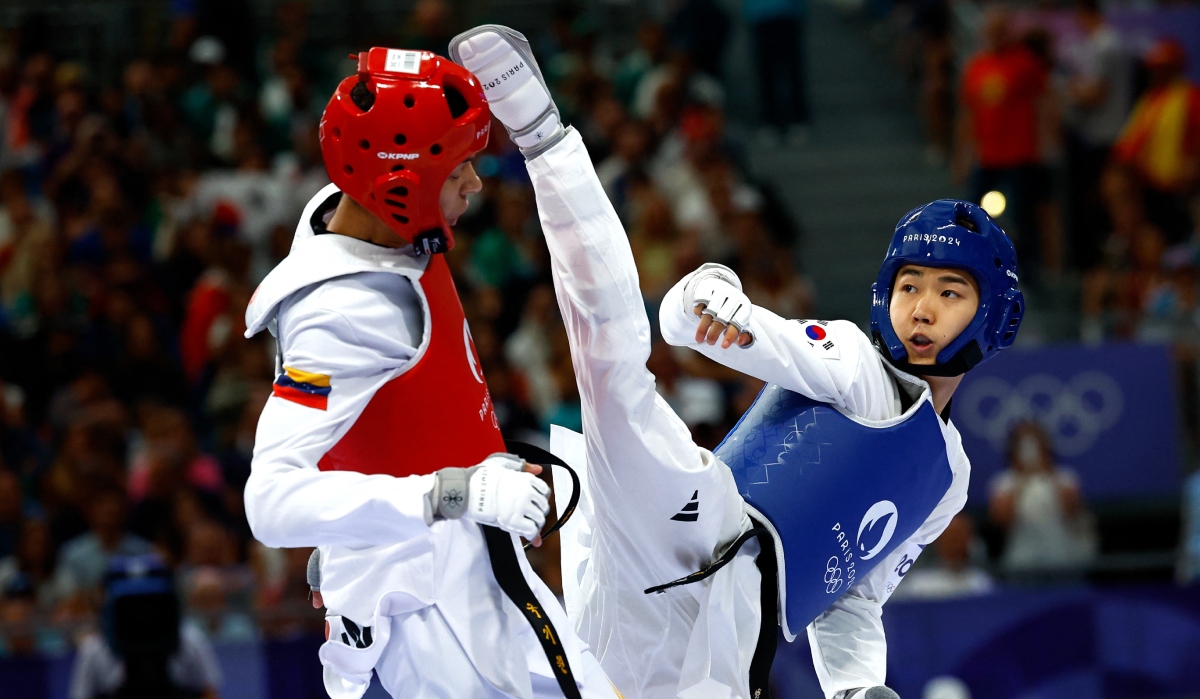After ten days of competition in the Paris Olympics 2024, some nations have been more successful than expected and are ahead of the medal predictions, like France. Meanwhile, some others are lagging against expectations.
With only six days of competition remaining at the Paris Games, some nations are already standing out from the crowd. Some have a particularly high medal conversion rate. Others, due to a lack of success in certain targeted disciplines, are in more difficulty than expected.
France ahead...
France, after an exceptional first ten days (46 medals until Monday), finished with 6 more medals than expected. This was due in part to the even greater success than in previous years of the disciplines that have historically provided the most medals: judo (10 medals, compared with 8 in 2021 and 5 in 2016), fencing (7, compared with 5 in 2021 and 3 in 2016) and cycling - which includes road, track, BMX and mountain biking (already 8 medals, compared with 2, 1 and 4 in the last three editions).
Also, thanks to the exceptional success of swimming (7 medals, 4 gold), driven by a historic Léon Marchand, where Les Bleus managed to do as well as in 2012 (7 medals, 4 gold), the year of their golden generation (Agnel, Muffat, Manaudou, relay).
... but not gold
A small qualification on this very positive balance sheet: the number of titles clearly "behind" predictions: 12 gold medals against 18 expected. And, as a direct consequence, an unexpected number of bronze medals: 18 out of the 46 medals on the evening of July 5 (before the night's surfing events, which were not taken into account by the Nielsen Institute), when only 8 were expected.
Why so many 3rd places? Part of the explanation lies in the successive disappointments of the French judokas and fencers. In both disciplines, L'Équipe was counting on 10 titles and 4 bronzes... However, defeats at the final gates by Dicko, Agbégnénou, Boukli, foil fencers and sabreurs transformed the 3 titles into 8 bronzes.
USA and South Korea better than expected
The USA are ahead of their medal predictions after ten days (78 versus 68 expected). No thanks to swimming: despite their new top spot (27 medals), the total number of American swimmers is lower than in the last six editions, and you have to go back to Atlanta in 1996 to see the USA collect fewer than 30 medals in the pools.
Hampered by the excellence of Léon Marchand, Kaylee McKeown and Summer McIntosh, and less successful in the relays (2 golds, 4 silvers), the Americans racked up 13 silvers, compared with "only" 7 golds. It was in the less expected disciplines of cycling (4 medals), fencing (4) and shooting (5) that the Americans performed where they were not expected to.
ALSO READ:
- Kho Kho World Cup is here! What we know so far as Brazil, Ghana among teams to arrive in New Delhi in January
- What’s next for President Yoon Suk Yeol as South Korea parliament votes to impeach him
- Why was South Korean president Yoon Suk Yeol impeached? Ruling party MPs back opposition motion
- Impeachment motion against South Korean Yoon Suk Yeol fails after ruling party boycott vote
South Korea is also on a very strong footing, having already collected more medals in Paris (26) after ten days than in Tokyo in sixteen days (20). And this is thanks to the total success of its signature sports, archery (7 medals) and shooting (6), in addition to a very good harvest in judo (5) and fencing (3). With this superb start, and even if its medal chances are lower in the second week, South Korea has every hope of returning to the final top 10 after its failure in Tokyo.
Italy behind but not on gold, Germany disappointing
After achieving their best-ever Olympic Games in Tokyo, Italy are still on a good footing at the halfway point, although they are 4 medals behind in total, they are 5 titles ahead (9), which puts them in 8th place provisionally. And this is thanks to a huge achievement in disciplines such as gymnastics - witness her 3 medals and Alice D'Amato's triumph on beam, where Simone Biles, who fell, was one of the favourites - or fencing (5 medals).
Germany, meanwhile, confirmed its fall in the medal rankings after ten days of the Olympics, having done worse than in six of the last seven editions, with only the London Games in 2012 offering any respite. Paris 2024 could continue this trend, with Nielsen's final virtual medal table predicting 35 medals for Germany, 2 fewer than in 2021. So, after ten days, the German team already has 5 fewer medals than expected. The problem is that Germany no longer dominates any sport, with the exception, to a lesser extent, of equestrian events, but these have already been completed for this edition.
(L'Équipe)



